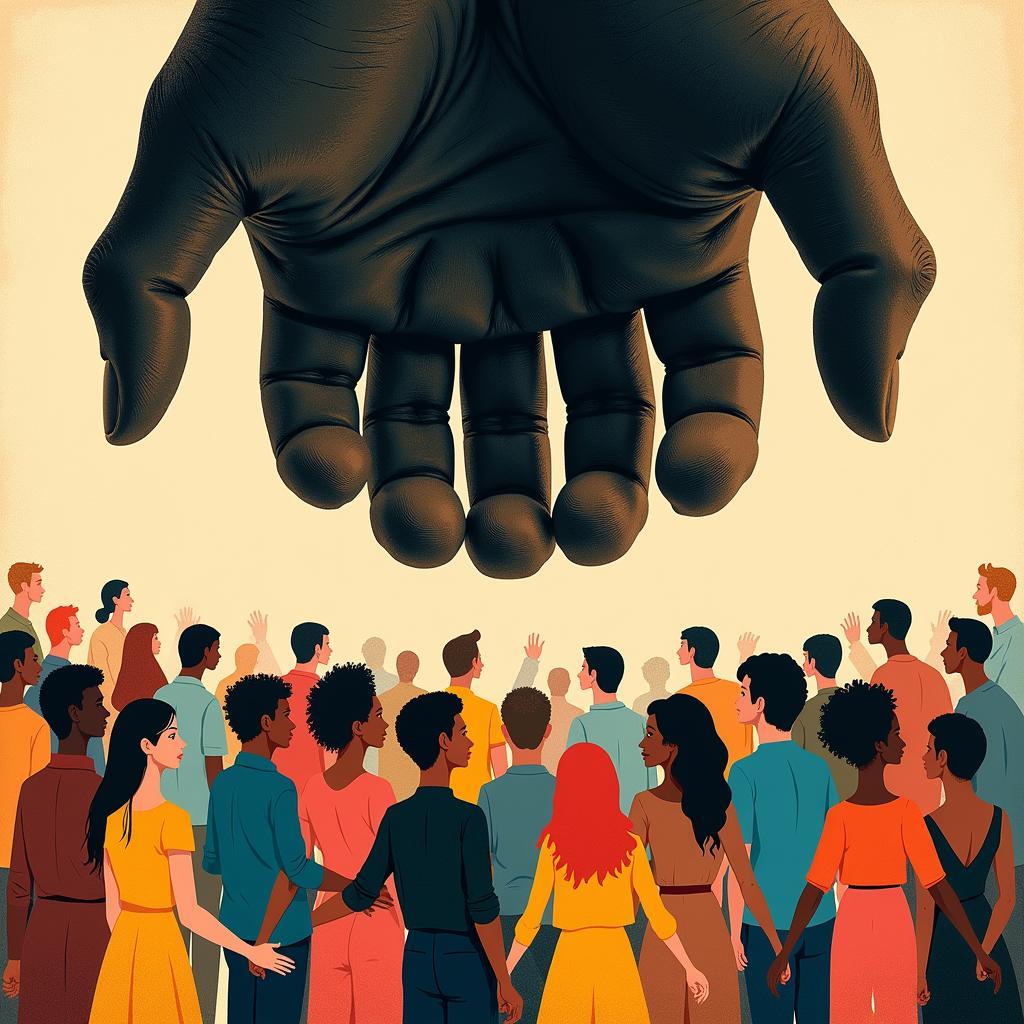Censorship, the suppression of speech, information, or artistic expression, is often touted as a way to protect society. However, Why Is Censorship Bad For Society? Its negative impacts far outweigh any perceived benefits, stifling progress and hindering the very foundations of a free and open society.
The Stifling Effects of Censorship
Censorship, in its many forms, restricts the free flow of information and ideas, effectively hindering society’s ability to learn, grow, and adapt. When certain perspectives are silenced, we lose the opportunity to challenge our own beliefs and develop a more nuanced understanding of the world around us. This can lead to a stagnant society, resistant to change and vulnerable to manipulation.  Censorship Stifling Progress
Censorship Stifling Progress
Limiting Intellectual Growth
By controlling what information is accessible, censorship prevents individuals from forming their own opinions based on a wide range of perspectives. This can stunt intellectual growth and critical thinking, as people are not exposed to diverse viewpoints that challenge their assumptions. This limited exposure can create a society where individuals are more susceptible to propaganda and misinformation.
Hindering Artistic Expression
Censorship often extends to artistic expression, limiting creativity and hindering the development of artistic movements. When artists are afraid to express themselves freely, society loses out on valuable cultural contributions. Art often serves as a reflection of societal values and anxieties, and censorship prevents these reflections from coming to light.  Censorship Limiting Artistic Expression
Censorship Limiting Artistic Expression
The Erosion of Trust and Transparency
Why is censorship bad for society? One critical reason is the damage it inflicts on trust and transparency. When information is controlled, suspicion and distrust breed. This lack of transparency can undermine democratic processes and erode faith in institutions. Society’s opinion on music, for example, can be heavily influenced by censorship.
Breeding Distrust in Institutions
When governments or other powerful entities engage in censorship, it creates a sense of unease and distrust among the population. People may begin to question the motives behind the censorship and wonder what information is being hidden from them. This erosion of trust can have long-lasting consequences for society.
Undermining Democratic Processes
A free and open exchange of information is essential for a healthy democracy. Censorship interferes with this exchange, preventing citizens from making informed decisions about their government and their future. Without access to a full range of information, citizens cannot hold their leaders accountable.
How Does Censorship Impact Free Speech?
The very essence of free speech is threatened by censorship. The ability to express oneself without fear of reprisal is a fundamental human right. When this right is curtailed, individuals are less likely to speak out against injustice or advocate for change. society’s oppinion on music is a prime example of how external forces attempt to control expression.
Silencing Dissenting Voices
Censorship is often used to silence dissenting voices and suppress criticism of those in power. This creates an environment where only certain viewpoints are considered acceptable, while others are marginalized or suppressed. This stifles debate and prevents the healthy exchange of ideas that is essential for a thriving society.
Creating a Culture of Fear
When people know that their words or actions can be censored, they may become hesitant to express themselves freely. This self-censorship can be just as damaging as overt censorship, as it creates a culture of fear where individuals are afraid to speak their minds.
Conclusion
Why is censorship bad for society? It undermines the very foundations of a free and open society, hindering intellectual growth, eroding trust, and suppressing free speech. By embracing open dialogue and the free exchange of ideas, we can foster a more informed, resilient, and just society. Let’s work together to promote freedom of expression and reject censorship in all its forms.
FAQ
- What are the different forms of censorship?
- How does censorship affect education?
- What are the long-term consequences of censorship?
- How can we combat censorship?
- What is the difference between censorship and content moderation?
- How does censorship impact freedom of the press?
- What is the role of technology in censorship?
Need help with censorship concerns? Contact us: Phone: 02043854663, Email: [email protected] or visit us at Zone 34, Bac Giang, 260000, Vietnam. We offer 24/7 customer support.